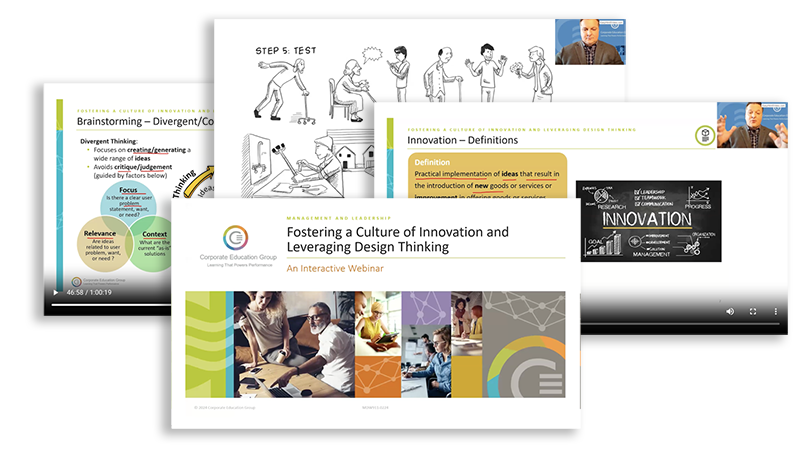Certified Associate for Project Management (CAPM®) Official Exam Prep Course
- Traditional Classroom: 3-day
- Virtual Instructor-led: Six 3-hour sessions
Every career in project management has a beginning and that is the purpose of this course. You will learn the fundamentals of project management. This includes project performance, when to use the predictive or adaptive methodologies, business analysis domains, and frameworks, as well as the proper use of one of the various adaptive frameworks.
The Project Management Institute’s Certified Associate Project Manager (CAPM®) is a valuable entry-level certification for project practitioners. The CAPM certification was designed for those with little or no project experience. It demonstrates your understanding of the fundamental knowledge, terminology, and processes of effective project management. This course will prepare the student to take the CAPM examination through practice exams, workshops, and class discussion.
Participants will receive a study guide of test questions; study guides for process groups and process inputs, tools and techniques, and outputs; and course material for studying at home.
Target Audience
This course is designed for individuals who have some working knowledge of project management, but little to no project experience, and those looking to enter the project management field.
Learning Objectives
- Demonstrate an understanding of the various project life cycles and processes.
- Distinguish between predictive and adaptive approaches.
- Demonstrate an understanding of project management planning.
- Demonstrate an understanding of project roles and responsibilities.
- Explain the importance of the role the project manager plays.
- Determine how to follow and execute and respond to planned strategies or frameworks (e.g., communication, risks, etc.).
- Demonstrate an understanding of common problem-solving tools and techniques.
- Identify the suitability of a predictive, plan-based approach for the organizational structure (e.g., virtual, colocation, matrix structure, hierarchical, etc.).
- Determine and give examples of the activities within each process.
- Demonstrate an understanding of a project management plan schedule.
- Determine how to document project controls of predictive, plan-based projects.
- Explain when it is appropriate and sustainable to use an adaptive approach for the organizational structure.
- Compare the pros and cons of adaptive and predictive, plan-based projects.
- Identify the suitability of adaptive approaches for the organizational structure (e.g., virtual, colocation, matrix structure, hierarchical, etc.).
- Identify organizational process assets and environmental factors that facilitate the use of adaptive approaches.
- Determine how to plan project iterations.
- Determine how to document project controls for an adaptive project.
- Distinguish between the components of different adaptive methodologies (e.g., Scrum, Extreme Programming (XP), Scaled Adaptive Framework (SAFe®), Kanban, etc.).
- Determine how to prepare and execute task management steps.
- Demonstrate an understanding of business analysis (BA) roles and responsibilities.
- Demonstrate the importance of communication for a business analyst between various teams and stakeholders.
- Determine how to gather requirements and use the best approach for a situation.
- Explain the application of a product roadmap.
- Determine how project methodologies influence business analysis processes.
- Validate requirements through product delivery.
Course Outline
Overview
- The Application Process
- The Exam
Fundamentals and Core Concepts
- Project Management Discipline
- Organizational Project management
- Organization Structures
- Project Management Office
- Organizational Influences
- Life Cycles and Processes
- Development Approaches
- Organizational Culture
- Change Management
Leadership
- Leadership vs. Management
- Leadership Styles
- Servant Leadership
- Emotional Intelligence (EI)
Roles and Responsibilities
- Project Management Roles
- Stakeholder Roles
- Project Management Skills and Competencies
- Importance of Project Manager Role
- Project Manager Influence
- Motivational Theories/Approaches
Project Initiation
- Project Initiation
- Project Charter and Kickoff Meetings
- Benefits Planning
- Stakeholders
- Stakeholder Communications
- Communications Management Plan
- Stakeholder Engagement Plan
Project Management Planning
- Planning Concepts
- Project vs. Project Management Plan
- Compliance and Quality
- Risk and Uncertainty
- Integrate Plans
- Planned Strategies and Frameworks
Predictive
- Predictive Approaches
- Process Groups
- Project Planning Components
- Requirements
- Requirements/Data Gathering Approaches
- Project Management Plan — Scope, Schedule, Cost
- Predictive Estimating Techniques
- Resources
- Quality and Risk
- Project Integrations
- Project Baselines
- Predictive Artifacts
- Project Controls and Measurement — Scope, Schedule, Cost
- Earned Value Management (EVM)
- Control Quality
Adaptive
- Agile Mindset, Methodologies, and Frameworks
- Adaptive Plans
- Adaptive Scope and Iterations
- Adaptive Schedules
- Adaptive Estimating and Prioritization
- Adaptive Teams
- Activities and Artifacts
- Tracking and Measuring Progress
- Uncertainty and Risk
Business Analysis
- What Is Business Analysis (BA)?
- BA Domains
- BA Roles and Responsibilities
- Methodology Influences
- Validate Requirements
Project Closure
- Project or Phase Closure
- Benefits Realization
- Knowledge Transfer
Summary, Action and Study Planning, and Next Steps
MDV171 Course Code
For more information on this topic, as well as how Corporate Education Group can help power your organization’s performance, contact us via email or call 1.800.288.7246 (US only) or +1.978.649.8200. You can also use our Information Request Form!






